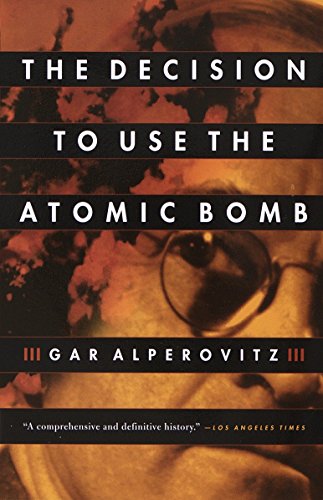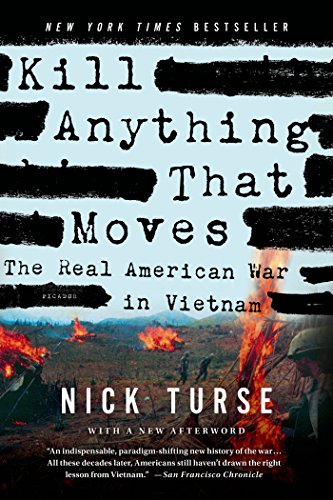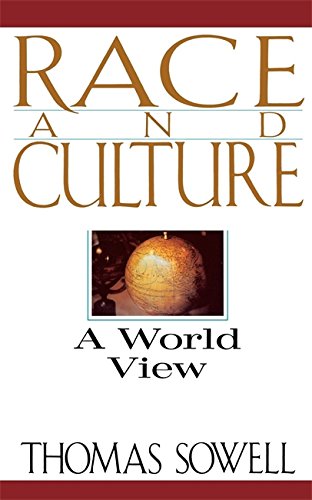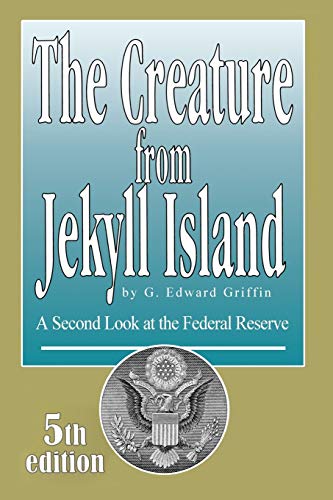(Part 2) Top products from r/Documentaries
We found 43 product mentions on r/Documentaries. We ranked the 880 resulting products by number of redditors who mentioned them. Here are the products ranked 21-40. You can also go back to the previous section.
21. The Decision to Use the Atomic Bomb
Sentiment score: -2
Number of reviews: 2
Used Book in Good Condition
 Show Reddit reviews
Show Reddit reviews22. Ghost Wars: The Secret History of the CIA, Afghanistan, and Bin Laden, from the Soviet Invasion to September 10, 2001
Sentiment score: -1
Number of reviews: 2
Penguin Books
 Show Reddit reviews
Show Reddit reviews23. The Psychopath Test: A Journey Through the Madness Industry
Sentiment score: 0
Number of reviews: 2
Great book!
 Show Reddit reviews
Show Reddit reviews24. JFK and the Unspeakable: Why He Died and Why It Matters
Sentiment score: 1
Number of reviews: 2
Touchstone Books
 Show Reddit reviews
Show Reddit reviews25. A Short History of Nearly Everything
Sentiment score: 2
Number of reviews: 2
Broadway Books
 Show Reddit reviews
Show Reddit reviews26. Guns, Germs, and Steel: The Fates of Human Societies
Sentiment score: 1
Number of reviews: 2
Age of ExplorationColonizationCultureInfectionArmament
 Show Reddit reviews
Show Reddit reviews27. Three Felonies A Day: How the Feds Target the Innocent
Sentiment score: -1
Number of reviews: 2
Encounter Books
 Show Reddit reviews
Show Reddit reviews28. The Mole People: Life in the Tunnels Beneath New York City
Sentiment score: 1
Number of reviews: 2
Chicago Review Press
 Show Reddit reviews
Show Reddit reviews29. One Man's Wilderness: An Alaskan Odyssey
Sentiment score: 1
Number of reviews: 2
Great product!
 Show Reddit reviews
Show Reddit reviews30. Cold War: For Forty-Five Years the World Held Its Breath
Sentiment score: 0
Number of reviews: 2
Abacus UK
 Show Reddit reviews
Show Reddit reviews31. The Missionary Position: Mother Teresa in Theory and Practice
Sentiment score: 1
Number of reviews: 2
Twelve
 Show Reddit reviews
Show Reddit reviews32. Van Gogh: The Life
Sentiment score: 1
Number of reviews: 2
life and times of Vincent Van Gogh
 Show Reddit reviews
Show Reddit reviews33. End Back Pain Forever: A Groundbreaking Approach to Eliminate Your Suffering
Sentiment score: 2
Number of reviews: 2
Used Book in Good Condition
 Show Reddit reviews
Show Reddit reviews35. Solving the Procrastination Puzzle: A Concise Guide to Strategies for Change
Sentiment score: 0
Number of reviews: 2
Solving the Procrastination Puzzle: A Concise Guide to Strategies for Change
 Show Reddit reviews
Show Reddit reviews36. Going Clear: Scientology, Hollywood, and the Prison of Belief
Sentiment score: 2
Number of reviews: 2
Going Clear Scientology Hollywood and the Prison of Belief
 Show Reddit reviews
Show Reddit reviews37. Kill Anything That Moves: The Real American War in Vietnam (American Empire Project)
Sentiment score: -1
Number of reviews: 2
Based on classified documents and first-person interviews, a startling history of the American war on Vietnamese civilians
 Show Reddit reviews
Show Reddit reviews38. Kill Anything That Moves (American Empire Project)
Sentiment score: -2
Number of reviews: 2
Picador USA
 Show Reddit reviews
Show Reddit reviews


My reccomendation would be The History of Science. Everything is available on YouTube in decent quality.
As a matter of overview, I would suggest Bill Bryson's a A Short History of Nearly Everything. It's a book, which requires reading, but there's an awesome illustrated version that's a good time. The book is as accessible as they come, and it's entertainingly written.
I would also suggest Cosmos, since you seem to be focused more on space. Both the original and the remake are available on Netflix. The original is my favorite, beucase Carl Sagan, but the remake is also a solid show, and probably more what you're looking for. There's also Through The Wormhole with Morgan Freeman, and a Stephen Hawking on the universe series which you might like. Pretty much everything is available on YouTube, just search "<show name>, long, hd".
I got about 25 minutes into the video; I'm not wasting more time. If you want to know serious data about the dangers of central planning of the monetary system, there are vastly better sources that talk in real, economics, and not lofty, sensationalist terms.
The International Role of the Dollar: Theory and Prospect by Paul krugman
Basic Economics by Thomas Sowell
The Creature from Jekyll Island by Griffin
Milton Friedman's Free to Choose videos
--------
My main objections in the first 25 minutes of this "documentary" are:
1) They're not correctly defining or using the terms currency or money and not identifying their economic role. Money is not the center of an economy, it is the lubrication that permits economics to happen. Economics is the analysis of how scarce resources that have alternative uses are allocated by people (by markets).
Money doesn't create those allocations, money enables those allocations.
Even in an economic system without money, there would still be allocations of scarce resources that have alternative uses by people; whether that is choosing to use your time to cut down a tree for your neighbor in exchange for beef or choosing to use your time to mow a lawn for your mother in exchange for a smile and a thank you; your time is a scarce resource and you're choosing how to allocate it with zero money being involved.
Money is any medium of exchange and is created as a store of one's labor.
You receive a dollar in exchange for X minutes of your labor. That piece of paper stores those X minutes of your labor and you can use it in exchange for something you value.
So anyway - this video does a shitty job identifying what money is at the outset... I don't think it'll get better.
2) The banking system, monetary policy, and politicians making a killing off of those systems has not been hidden from anyone. As they admit, almost in a very quick juxtaposition with their incorrect statement, the bankers, academics, and politicians are very open about their systems.
The problem is that people are just happy with their lives and are safer than they've ever been throughout history.
3) A complete misunderstanding of what "interest" is and what fractional reserve banking is.
Interest is the cost of lending money... it is the price tag on a product just like on the coat or iPod you buy. The baker isn't going to give you all his bread for free; why should a bank give you money for free?
Fractional reserve banking can be done responsibly. Much like the interest rate, it should be done at the rate set by free markets. A fractional reserve rate of 90% almost completely guarantees that when you withdraw, you will always be able to withdraw all of your money. In exchange, banks will give you vastly lower of an interest rate than at a 10% fractional reserve rate because it is higher risk and lower reward for the bank.
Anyway - like so many other documentaries out there about extremely complex matters, this one is just trying to sell a product like every other good capitalist out there. They need to catch your attention and get you to talk about it to others to make money - so of course they're going to play to the 8th grade education market.
Haven't yet watched the documentary, but the description reminds me of Guns, Germs and Steel, an excellent book on the same subject.
The fact that Western culture dominates the world (for now) seems a given, but it's not so easy to explain why it wasn't, say, Sub-Saharan Africans or Native Americans that conquered the world.
If you're at all interested in how geography defines societies, why inventions were or weren't made by them, why conquests happened or didn't, and so on, I can really recommend this book. Easily one of the most fascinating I've ever read.
My expectation is the only source for his paper dealing with the suicide being a murder was the book he posted in the comment above. The theory isn't really something that has been accepted, or researched in terms of true academic rigor outside of this book.
In saying that, it is a good book on Van Gogh. It takes its liberties, but that is normal. I'd also suggest [Lust For Life] (https://www.abebooks.com/book-search/title/lust-for-life/author/stone/pics/) as an option as well. It is a bit more fun to read, and hits a lot of interesting points in his life while taking a few artistic liberties.
Great documentary but I also highly recommend the book
It's phenomenally well-written and a brilliant read
Saw it. McNamara is still a loyal servant of a corporatist enterprise whose only logical outcome was his spawn, Rumsfeld.
McNamara's vanity was to be remembered as a good soldier. Rumsfeld's was to go down without a single regret. But both would never out the chest of corpses that they were hiding. Rumsfeld doesn't even pretend to. McNamara on the other hand, carefully presents the public relations hot points that liberals will take as a measure of good will. Read JFK and the Unspeakable by Douglass http://www.amazon.com/gp/product/1439193886/ref=pd_lpo_sbs_dp_ss_1?pf_rd_p=1944687502&amp;pf_rd_s=lpo-top-stripe-1&amp;pf_rd_t=201&amp;pf_rd_i=1608190064&amp;pf_rd_m=ATVPDKIKX0DER&amp;pf_rd_r=0PQRARQ4WQ7GKPCWAG33. Or Russ Baker's Family of Secrets http://www.amazon.com/Family-Secrets-Americas-Invisible-Government/dp/1608190064
Oh, sure. The book is called "One Man's Wilderness." It's a good read, though it doesn't diverge wildly from what you hear in the movie. Still quite interesting though.
http://www.amazon.com/One-Mans-Wilderness-Alaskan-Odyssey/dp/0882405136
Excellent documentary series, but why start on the 20th episode?
the Playlist.
And book that accompanies it.
The two are for those who are interested in the era but aren't experts in it, so it's not too daunting if you're new, despite being 26 episodes long.
If you like this then you'll really like a book by Bill Bryson, A Short History of Nearly Everything, highly recommended. Anything by Bryson, really.
Worth mentioning that the book goes into a lot more detail, especially with the history of the church and all of Mr. Hubbard's misadventures. Hubbard was a fascinating guy, flawed and fucked up, but he definitely makes for an interesting read.
Amazon link
The Mole People is a great book on people who live in the vast networks of tunnels and abandoned areas under NYC. I first read it in my anthropology class about 10 years ago and I've kept it since. It's a very fascinating read about life and culture right under the feet of the people on the surface.
Did you know Amazon will donate a portion of every purchase if you shop by going to smile.amazon.com instead? Over $50,000,000 has been raised for charity - all you need to do is change the URL!
Here are your smile-ified links:
https://smile.amazon.com/End-Back-Pain-Forever-Groundbreaking/dp/1439167443
---
^^i'm ^^a ^^friendly&nbsp;bot
Congratulations on the studies. Here is another book for your consideration:
https://www.amazon.com/Creature-Jekyll-Island-Federal-Reserve/dp/091298645X/ref=asap_bc?ie=UTF8
I think you guys might enjoy this good read: The Mole People About 50,000-80,000 people living beneath Manhattan.
For those interested his name is Dr. Tim Pychyl. I had to google images 'procrastination professor'. Here is a link to his book with decent reviews.
Hitchens did a book about her too if anyone is interested.
http://www.amazon.com/The-Missionary-Position-Mother-Practice/dp/1455523003
I would also recommend his book, The Missionary Position: Mother Teresa in Theory and Practice
Ah jeez sorry to hear that. Back pain does sometimes go away but it usually requires treatment/physical therapy. Definitely check this book out https://www.amazon.com/End-Back-Pain-Forever-Groundbreaking/dp/1439167443
I'll stick with the testimony of the soldiers who were there, and that of the Vietnamese victims and the serious historians who've gone through the documents and archives.
I've spoken with Scott Camil who is featured throughout the Winter Soldier, he gave honest testimony corroborated by comrades and by Vietnamese victims whom he visited and apologized to in 94'.
Read Nick Turse's work "Kill Anything That Moves", every single atrocity is painstakingly verified by multiple sources many of which are direct US gov documents that were suppressed.
https://www.amazon.com/JFK-Unspeakable-Why-Died-Matters/dp/1439193886/ref=sr_1_1?s=books&amp;ie=UTF8&amp;qid=1472854930&amp;sr=1-1&amp;keywords=jfk+and+the+unspeakable
> Main takeaways?
Here you go!
I referred to it elsewhere in this thread, this book shows that My Lai was just the tip of the iceberg.
This book is actually really and talks about this subject: http://www.amazon.com/gp/aw/d/1594485755?vs=1
Non-mobile: http://www.amazon.com/dp/1594485755?vs=1
^That's ^why ^I'm ^here, ^I ^don't ^judge ^you. ^PM ^/u/xl0 ^if ^I'm ^causing ^any ^trouble. ^WUT?
This perhaps? It's on my to read list since I saw this doc.
White Gold: The Extraordinary Story of Thomas Pellow and North Africa's One Million European Slaves
https://www.amazon.com/gp/product/0399168125?*Version*=1&amp;*entries*=0
>But why didn't they develop industry?
a book with hypotheses on that:
https://www.amazon.com/Guns-Germs-Steel-Fates-Societies/dp/0393317552
Also here is a good book on the topic Three Felones A Day.
The basis of the book is that everyone commits at least three felonies every day. Most of us don't know every single law but we are expected to know and abide by every single law.
There is new evidence, such as accounts from people alive at the time, that suggest he was killed by a young man. (it is unclear why the boy shot him, could have been accidental, could have been malicious)
Here is an article about it that sums it up well: http://www.vanityfair.com/culture/2014/12/vincent-van-gogh-murder-mystery
Here is a book that goes into copious detail: https://www.amazon.com/Van-Gogh-Life-Steven-Naifeh/dp/0375758976/ref=sr_1_4?ie=UTF8&amp;qid=1481781701&amp;sr=8-4&amp;keywords=vincent+van+gogh
I myself read all the letters that are currently published between Vincent and his brother Theo, over 600 letters spanning his life time, read the interviews with people who knew him, looked at his medical history, and though its clear he was unhappy, he did not have the intention of killing himself that day (via the letter he sent that morning), and his autopsy helps prove that he was unlikely capable of creating the wound that he died from.
Frankly, His artwork was just starting to get noticed by the art world, having had his work officially critiqued, he was working on a new piece for a gallery exhibition him and his brother were going to host together to display Vincents work, all together, he was getting better. A couple more months and he would have had the fame he is renowned for. He was having a good day, and died.
Some people are born in areas where resources are more or less plentiful, this is not fair. That being said, some cultures or demographics make more babies who make more babies at rates which continue to ensure the limited resources available are certainly incapable of handling the population. Well what to do besides fuck if there is nothing to hunt, well their is war, political power, etc...Or their is entering the labor force through education and training. But it doesn't exist, ok import it, NOPE IMPERIALISM! rant off/
https://en.wikipedia.org/wiki/List_of_sovereign_states_and_dependencies_by_total_fertility_rate
May I suggest Sowell for an interesting viewpoint on historical choices of individuals as they relate to their particular advantages or disadvantages within certain areas, types of legal framework, ethnic groups, and culture... https://www.amazon.com/Race-Culture-World-Thomas-Sowell/dp/0465067972/ref=la_B000APQ7EI_1_17?s=books&amp;ie=UTF8&amp;qid=1495232293&amp;sr=1-17&amp;refinements=p_82%3AB000APQ7EI
do you have any earthly idea how many crimes you "do" on a daily basis?
http://www.amazon.com/Three-Felonies-Day-Target-Innocent/dp/1594035229
shut the fuck up and read it
Cold War: For Forty-five Years the World Held its Breath
By Jeremy Isaacs and Taylor Downing
Nick Turse has written a book called Kill Anything that Moves: The Real American War in Vietnam.
http://www.amazon.com/gp/product/0805086919?*Version*=1&amp;*entries*=0
It is based on archival records and makes the point that the My Lai massacre was not an aberration at all.
There's a brilliant book on this subject called 'White Gold' by Giles Milton https://www.amazon.com/White-Gold-Extraordinary-Africas-European/dp/0340794704/ref=sr_1_8?ie=UTF8&amp;qid=1495273413&amp;sr=8-8&amp;keywords=white+gold. It tells the story of how a million white slaves were sold into North African slavery, and follows a young English lad, William Pellow, caught by the Barbary/Moroccan sailors and sold into slavery, alongside Americans, Dutch, French etc.
Most were tortured into converting to Islam, and if did then their home nations wouldn't see them as Christians and wouldn't try and rescue them.
Strangely, this slave trade was still going on after the Atlantic slave trade was banned, and were only rescued after the Royal Navy bombard the Sultan's towns and ports.
The issue wasn't just that the US-Saudi-Pakistani axis funding a civil war and then pulled out; it was that for the majority of the war, funding and support was structured to sideline moderate rebels in favor of the most hardcore and ruthless Islamist rebels. This was because the the US simply had no interest in what happened in Afghanistan to the locals--they just wanted to kill Soviets. So Afghanistan falling into a brutal civil war, and then subsequently getting taken over by the Taliban (who were at the time a proxy to the Pakistani Army), was pretty much hard-coded into the policy toward Afghanistan since it was created in the early 1980s.
Check out Ghost Wars: The Secret History of the CIA, Afghanistan, and Bin Laden, from the Soviet Invasion to September 10, 2001 (2004) for a fantastic, well-researched and in-depth narrative look at all of this.
Many of those figures were exaggerated and fabricated after the war, as historians have known for around fifty years.
Even the pre-war figures were also based on faulty, often racist assumptions, about the unwavering tenacity and fanaticism of the Japanese population, in which they argued that much of the civilian population would either fight invaders with their bare hands, or commit suicide rather than be conquered.
Both left out the fact that eight straight years of war, and being completely cut off from their empire in the last year, the Japanese were only months away from being completely without the resources, gasoline/oil/rubber/steel etc... necessary to continue the war. A fact which was not unknown to us, nor does it mention that Japanese were seeking conditional surrender for months before we dropped the bomb.
Edit: For further reading on the topic, I would recommend John Dower's War without Mercy, Tsuyoshi Hasegawa's Racing the Enemy, Gar Alperovitz's Atomic Diplomacy and The Decision to use the Atomic Bomb
A week ago I would have said the same thing as you, but recent scholarship does not support even the idea that the people at the time thought it was necessary.
On Monday I listened to this great lecture by Gar Alperovitz based on his book The Decision to Use the Atomic Bomb. He goes through all of the military reports and journals of the people involved.
The military didn't think it was necessary (particularly Eisenhower). The British didn't think was necessary. The political staff didn't think it was necessary, except for Truman's Secretary of War Henry Stimson who had enormous influence over Truman because Stimson was his former patron in the Senate.
> He was the only top government official who tried to predict the meaning of the atomic age—he envisioned a new era in human affairs. For a half century he had worked to inject order, science, and moralism into matters of law, of state, and of diplomacy. His views had seemed outdated in the age of total warfare, but now he held what he called "the royal straight flush." The impact of the atom, he foresaw, would go far beyond military concerns to encompass diplomacy and world affairs, as well as business, economics and science. Above all, said Stimson, this "most terrible weapon ever known in human history" opened up "the opportunity to bring the world into a pattern in which the peace of the world and our civilization can be saved." (Wikipedia)
What struck me about Alperovitz's talk was the casualty figures. The realistic casualty figures were 0 (that's right, zero) because the Japanese were dying to surrender. The estimated casualties if an invasion were necessary were about 45,000, because they had no fighting capacity left. The estimate of 500 thousand to 1 million were only mentioned after the fact to justify was was basically a war crime.
These cities had no industrial capacity. They were filled with women, children, the elderly, and the injured. The bomb was only dropped to scare the Russians and set up the stage for the Cold War.